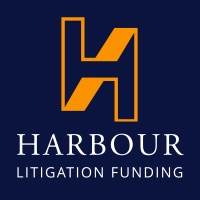11 April, 2018
We asked those responsible for selecting and/or working with external law firms which qualities law firms need to possess to build an effective relationship with their corporate client. This is what they said.
Dr. Robert L. Rom
Attorney at Law, FCIArb, rlr arbitration, Previously UBS and Swiss Life, Switzerland
In today’s fast and complex corporate legal landscape, the need for reliable and efficient counsel is bigger than ever. While cost efficiency, loyalty, availability or professionalism are taken for granted, there are other characteristics I valued in 20 years as Group Legal and M&A counsel with a focus on litigation and arbitration within large multinational corporations.
Relationship manager as one-stop shop
It is essential for in-house counsel to be able to rely on one relationship partner who selects and helps supervise the optimal team for any legal matter and who takes ultimate responsibility for services rendered. The client should only have one single contact person when it comes to discussing efficiency, quality or strategic matters. This is especially true where numerous jurisdictions are involved – the corporate may not have personal contacts locally – but it also applies to domestic matters requiring experts from various legal elds.
Consistency of the legal team
When a project or matter stretches over a long period of time, the composition of the legal team should be maintained as long as possible. Some firms install junior associates or paralegals who only work on a case for few months who are then replaced again, and again. Valuable knowledge gets lost each time and fees and resources are wasted by restoring it.
First hand knowledge of the client’s industry
Senior lawyers working with a corporate client should be familiar with its trade, through in-house or other direct exposure. It will then be much easier for the GC to relate their speci c needs, but also for his lawyer to contribute valuable and customised input. Similarly, well rounded rst- hand legal expertise is required. For example, a litigator with M&A experience is better suited to litigate a post transaction dispute than someone who never sat through Due Diligence or SPA negotiations.
Understanding your client’s culture
Corporates are unique animals with processes di cult for outsiders to comprehend. Even an experienced external lawyer may not fully understand the ne mechanisms or needs of a committee or board of directors without having worked in-house. When it comes to PR or communications, among the most sensitive areas for corporations, especially listed ones, external lawyers often focus on the best legal outcome without considering the communication impact. A lawyer with relevant senior in-house experience could have an edge.
Guidance is a two-way street
Corporations hire legal advisors to prevent or to guide them through difficult legal, regulatory or commercial situations and expect only the best. Lawyers can be troubleshooters or resolvers, but may lack in-depth understanding of their client’s customs and processes. It is essential that in-house counsel guide and help familiarise advisors with their culture and corporate processes from the beginning. It will create the most e ective relationship.
Mark Amsden
Former GC and Company Secretary, Morrisons Supermarkets Company Secretary, Yorkshire Water, UK
Understanding internal pressures
A CFO is charged with hitting his or her numbers. That means the GC needs to get the legal budget right, and then stick to it, or better still, beat it. Furthermore, it is not unusual to be tasked mid-year with finding additional savings even against a previously approved budget. Law firms need to understand that all GCs might face this responsibility.”
The constant demand to drive costs down
Every year the costs of running a business increase. At Morrisons it would cost, on average, an additional £130m (approx.) per year to run the supermarket, as rent, rates, wages and energy bills increase. So, the CFO will task people in the business, including the GC, with delivering productivity savings. As a GC you need to make sure your team delivers those savings. It is why external law firms get pushed down on rates. It also explains why the Procurement department of a company will zone in on percentage savings for any external suppliers. If a supplier isn’t reducing its rates by a certain percentage, Procurement will take some persuasion before signing off the contract.”
The impact of CFOs
The CFO doesn’t want any surprises, especially when it comes to OpEx items in the budget. No surprises includes provisioning properly for claims against the company.
Lawyers complain that surprises are inherent in litigation, but a CFO doesn’t care. Therefore, it is key that the GC gets his or her provisions right.
It is unforgivable to have to advise the auditors of a surprise provision in relation to a claim or risk as it completely ruins the numbers for the business and causes a huge audit-related headache.
Anything that can help prevent that from happening, we love to hear about from our external lawyers.
Melissa Strong
Head of Insurance Litigation, Group Legal Department Lloyds Banking Group plc, UK
Strong relationships between a corporate and their panel law firms are fundamental to the success of an in-house legal function. A trusted firm is one who is seen as an extension of the in-house legal team. That said, care should be taken not to overstep the relationship. It is also key to understand the in-house team’s vital role as the interface between law firms and the business they are advising.
Invest
They will gain an insight into the corporate’s commercial aspirations, their risk appetite and also into those small problems, that don’t yet justify referral outside the in-house team, but can grow into something quite substantial as matters evolve.
Consistency of global service
Firms who offer a global service should take the time to understand which colleagues are being instructed overseas and how to support that relationship to ensure consistency of service for the in-house team.
We would always prefer to instruct an overseas o ce of a panel law rm, but it is amazing how few take the time to investigate those countries where we need support, and offer assistance through the engagement of overseas Partners. The locally UK-based panel teams should stress test the advice from overseas offices to ensure, at a very basic level, the terminology is coherent with local terminology, as confusion in this regard can ultimately undermine the advice and the relationship.
Dr Ulrick Bez
Brand Ambassador, former CEO Aston Martin, Germany
Advice in a nutshell
Firstly, for a super busy CEO, advice in a nutshell is a key requirement. If I need transactional advice or a legal solution to a dispute, I want to be presented with clear options in a timely manner.
For this a lawyer needs to understand the business. This may sound obvious but it requires the combination of being a fantastic lawyer and the dedication to understand how the business works, what is important to us and what we are trying to achieve.
Bespoke service
Secondly, I highly rate a bespoke service. This includes receiving a personal service when needed. Not only in the country where our headquarters are located, but in other jurisdictions also.
The right team, with the right expertise dealing with the problem at hand.
We also want to be kept informed on the latest developments: that ranges from technological advancements which may facilitate legal contract negotiations, to how we can manage risk – such as third party funding – and how different fee models can work for different legal work optimally.
We may decide that not all solutions work for us all the time, but we want to know about them and
make that informed decision ourselves.
Creative commerciality
Other qualities I look for are proactivity, creative thinking and commerciality. For example, a solution can be perfectly legal but we now also need to ask ourselves: is it ethical? Nowadays corporate reputations are being scrutinised by the media, politicians, clients and the public. We all know that if the legal advice has a consequence that does not match our brand values, this could be damaging and, as we have seen over the years for some organisations, it has been diffcult to recover.
Meg Redwin
General Counsel, Executive Director Multiplex Australasia, Australia
This question is often answered in a master/slave context of the corporate needing the law firm to meet certain criteria and toe an imaginary line. Often the relationship exists within a very formal panel system. That doesn’t work for me. I know panels are good and useful, but it seems that you can end up with quite a rigid panel.
Anecdotally, a great deal of stress is caused by asking law rms to meet huge lists of tender criteria that may or may not be relevant to how the work is done. I also find it ironic that I might be asked to provide a reference to a law rm so that a competitor can use that law firm that I have a strong relationship with!
Once you have that formal panel – how do you deal with the need for exibility when a key partner leaves a law rm to join one not on the panel? So on that basis it mightn’t surprise you to know that I have an informal panel, to which we add as relevant issues arise and we need a specialist we may not have needed before.
Understanding the business
I build strong relationships with the external firms we use, and expect those firms to understand the dynamics of the business, the context of our parent entity, etc.
The real power of a good relationship is someone who actually understands the industry that you work in and can help when you need to bounce ideas around, need something done urgently, or are in a large, complex matter.
Away from the status quo
I think in the context of litigation, really strong relationships are needed, as without those, the inevitable drain of costs can impact the relationship. You need a team of externals who are constantly thinking of the strategy and how resolve in the best way, rather than run it in the standard way because that is the status quo.
Commerciality
The other often cited issue is commerciality – you want externals who are not wasting time on irrelevant issues just because there is a small legal risk. Much better is someone who can explain the risk and the mitigants because they understand the industry. That can sometimes be a ne balance.
With thanks to investor action specialist, Institutional Protection Services for providing the statistics.
For further information, please contact:
Ruth Stackpool-Moore, Director of Litigation Funding / Head of Harbour Hong Kong
ruth.sm@harbourlf.com

.jpg)





